Metro Washington
Chapter
2023-24 MWC Scholars

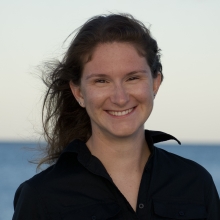
Ellen R. Jacobs
Mars Foundation Scholar
- 1st Year Scholar
- PhD Candidate, Biology
- Bottlenose dolphins foraging with sponge tools in Shark Bay, Western Australia represent the best documented case of tool use in a wild cetacean, but precise mechanisms of the technique are not known. This research investigates whether dolphins modify echolocation use while sponging compared to similar foraging methods without sponge tools by combining behavioral, acoustic, and sound propagation modeling techniques.
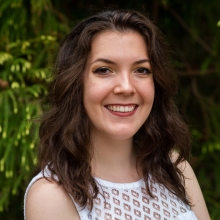
Zoe X. Malchiodi
Matt Riddle Scholar
- 1st Year Scholar
- PhD Candidate, Tumor Biology
- Investigating mechanisms of immune cell interactions in pancreatic cancer by utilizing high through put special technologies. This approach will provide insights on immune cell localization and identify new therapeutic targets to promote anti-tumor immune responses and immunotherapy efficacy in pancreatic cancer.

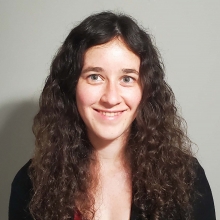
Hallie M. Fausey
Michelle & Julian Francis Scholar
- 1st Year Scholar
- PhD Candidate, Physics
- Research involves studying gamma-ray bursts, the most energetic stellar explosions in the universe, with observational data from some of the largest telescopes on earth, using these extreme explosions as probes of the farthest reaches of the universe, and evaluating and optimizing the capabilities of new instrumentation to further their studies in the future.
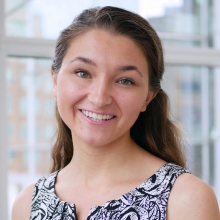
Rachel E. Gray
ARCS-MWC Chapter Scholar
- 1st Year Scholar
- Masters Student, Mechanical and Aerospace Engineering
- Research uses modeling and optimization techniques to understand the impact of integrating renewable energy generation and storage technologies into urban communities. The results establish combinations of these technologies such that communities can improve the efficiency, reliability, resiliency, and cost of generating and distributing energy.

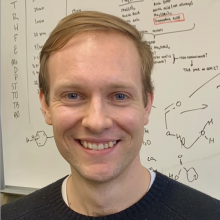
Reynolds L. Dziobek-Garrett
JCM Foundation Scholar
- 1st Year Scholar
- PhD Candidate, Chemistry
- Research focuses on controlling the properties of atomically-thin semiconductors via chemical synthesis. It uses high-resolution electron microscopy and laser spectroscopies to understand the role of crystalline defects formed during growth of these “2D” materials, which have applications in nanoscale electronic and quantum devices.
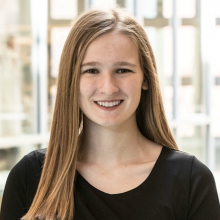
Jessica Lorraine Stelzel
Danaher Corporation Scholar
- 1st Year Scholar
- PhD Candidate, Biomedical Engineering
- Research seeks to understand the mechanism(s) by which a novel nanofiber-hydrogel composite material is remodeled in vivo into vascularized soft tissue by infiltrating host cells. It will leverage this information to optimize its formulation, thus developing an improved off-the-shelf material with enhanced capacity to achieve natural tissue restoration.
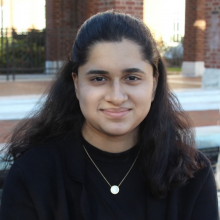
Sheila S. Iyer
Danaher Corporation Scholar
- Undergraduate Scholar
- Biomedical Engineering
- Research in human genetics and genomics, using bioinformatic tools and creating analysis pipelines to study DNA sequencing data and mutations in genes.
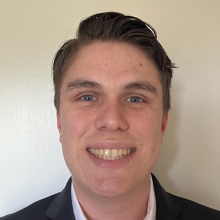
Harrison J.V. Sims
Danaher Corporation Scholar
- Undergraduate Scholar
- Biomedical Engineering
- Research involves the development and evaluation of a novel syringe organizational tool meant to reduce anesthesia delivery errors and improve operating room safety.

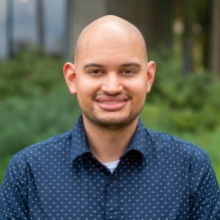
Patrick M. Keating
Forster Family Foundation Scholar
- 2nd Year Scholar
- PhD Candidate, Biochemistry
- Research investigating the role of the Lassa virus transmembrane domain in the membrane fusion mechanism. Determining new information about this vital process in the viral lifecycle using a variety of biochemical and biophysical techniques to better understand how changes in its structure influence the function of the protein.
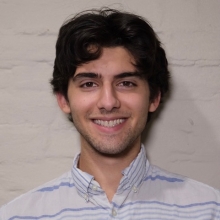
Mazda Moayeri
ARCS-MWC Endowment Scholar
- 1st Year Scholar
- PhD Candidate, Computer Science
- Research investigating the role of the Lassa virus transmembrane domain in the membrane fusion mechanism. Determining new information about this vital process in the viral lifecycle using a variety of biochemical and biophysical techniques to better understand how changes in its structure influence the function of the protein.
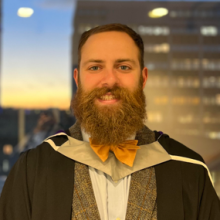
Nick R. Schwartz
Sweetser Family Scholar
- 2nd Year Scholar
- PhD Candidate, Material Science & Engineering
- Scientists have long attempted to use fusion reactors to create miniature stars on Earth for energy production, but implementation is inhibited where a man-made star interacts with surrounding walls. As part of a team that is developing a novel fusion reactor, this research tests materials that can survive the immense heat and radiation through simulations and experiments.
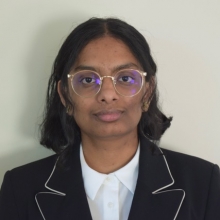
Sadia Nourin
Sparrell Family Scholar
- Undergraduate Scholar
- Computer Science & Finance
- Research focuses on measuring and evading nation-state censorship to enable free and open communication on the Internet. I find ways to measure censorship in small countries, which are often overlooked by the censorship community, without the use of volunteers or vantage points.

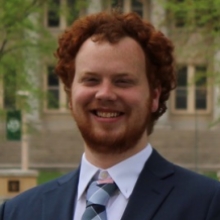
Steven R. Lamp
McNichols Family Foundation Scholar
- 1st Year Scholar
- PhD Candidate, Computer Science
- To evaluate novel machine-learning (ML) techniques to detect autonomous bots online, one needs to accurately mimic the digital artifacts created by human’s behavior. This research creates human-like responses by analyzing a real human's digital behavior, takes those behavioral traits and augments an AI control unit to utilize a computer in a realistic way.
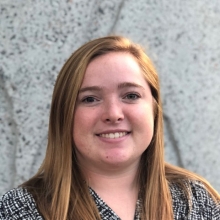
Allison N. McCrady
Danaher Corporation Scholar
- 1st Year Scholar
- PhD Candidate, Biomedical Engineering
- Current assessments of muscle function for neuromuscular disease rely on a patient’s ability to complete tasks, excluding those with anxiety and cognitive challenges. Using ultrasound imaging and modeling to develop new ways to estimate patient function directly from clinical muscle measurements will improve treatment decisions and therapeutic development for patients.
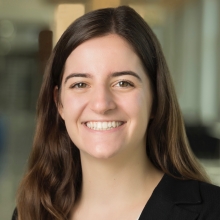
Gertrude (Gigi) Pavur
ARCS-MWC Endowment Scholar
- 1st Year Scholar
- PhD Candidate, Civil & Environmental Engineering
- Research leverages public and commercial satellite data with high spatial and temporal resolution to advance applications of Earth observations for hydrological remote sensing of natural disasters. An interdisciplinary risk assessment of hydrological and socioeconomic variables is conducted to improve understanding of opportunities to decrease risk and build resilience in vulnerable communities.
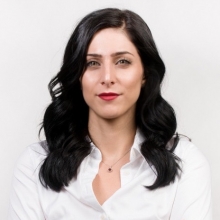
Rachelle A. Turiello
ARCS-MWC Endowment Scholar
- 1st Year Scholar
- PhD Candidate, Chemistry
- Research includes the development of integrated microfluidic devices for the preparation and analysis of nucleic acids, such as DNA and RNA, for clinical and forensic applications. This requires an interdisciplinary approach, incorporating themes from chemistry, engineering, physics, and genetics to provide solutions to real-world problems, such as viral detection and human identification.
